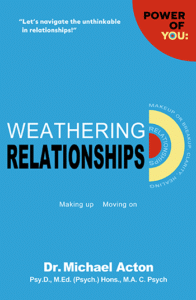How to give advice to a friend with relationship problems: dos and don’ts
When a friend opens up to you about their relationship, it’s natural to want to help, and not knowing what to say to a friend with relationship problems is a very common dilemma. Here are some essential dos and don’ts to keep in mind when your friend is experiencing relationship problems. And take note! Doing this wrong can lead to permanent damage and unwanted results.
Don’t: Offer advice!
Generally, not giving advice is the best course of action, especially if your friend isn’t seeking it. Unless they explicitly ask for guidance, or are at risk of harm, refrain from directing them on what to do. Actively listen and encourage them to decide on what course of action is best for them. Be patient as it is a process.
Do: Listen actively and respectfully
One of the most valuable things you can do is listen accurately and attentively. Make sure you’re hearing them fully without rushing to give advice or make assumptions. Often, just feeling heard can provide your friend with a sense of relief and clarity.Don’t be afraid to ask a direct question if you’re uncertain about what they’re telling you.
Don’t: Act on their behalf
A friend going through relationship problems may only be seeking a listening ear, not asking you to take action. You may be tempted to jump in and offer practical help, but only act on your friend’s behalf with their 100% endorsement. If there is clear evidence of domestic violence or a possible suicide attempt, this is the only time you must intervene.
Do: Respect confidentiality
Your friend is trusting you with sensitive information, so respect their confidentiality. Avoid sharing any details with others unless there are risks of domestic violence, self harm or harm to others. Breaking confidentiality can damage your friend’s trust and even worsen their situation.
Don’t: Publicly share or act on their relationship problems
One of the worst things you can do is make your friend’s private matters public. Avoid telling their partner or others about the issues without your friend’s consent. This can be unsafe, invasive and potentially harmful. Keep your support private and respectful. But it may be wise to ask if they’ve confided in anybody else and, by doing so, establish a support network.
Do: Help them find their own solutions
Understand that your friend is not you! Instead of giving advice from your point of view, focus on being your friend’s consultant and helping them explore their options. They have their own way of dealing with problems, so ask them what they think they should do.
And again, the only exceptions are if they are in danger of harming themselves or someone else, or if they are an abusee in a domestic violence situation.
Do: Support them to be in their truth
Help your friend to be in their truth and if there is shame, to not hide behind it. Help them feel safe in expressing any emotions that come up. Let them know that you’re there for support, and make sure they have a way to contact you so that they don’t feel isolated or alone.
Feel able to gently challenge something they’re saying you know is not true. People in distress can sometimes distort the truth as a way of surviving.
Don’t: Ignore your own boundaries
It’s important to set boundaries so that your support doesn’t become overwhelming for you. If you find yourself feeling drained, remember to put on your own oxygen mask first. You can only support others effectively if you’re taking care of your own needs as well.
And be mindful, you may not be qualified to help your friend in the way they need, and if you sense this, try to find appropriate help for them, with them.
Weathering Relationships, my latest book, may be of help to you and your friend. It covers all the above and much more to help people navigate the tough stuff as they make up or move on from a relationship.


